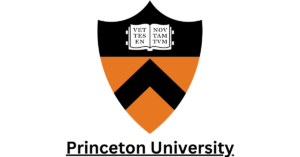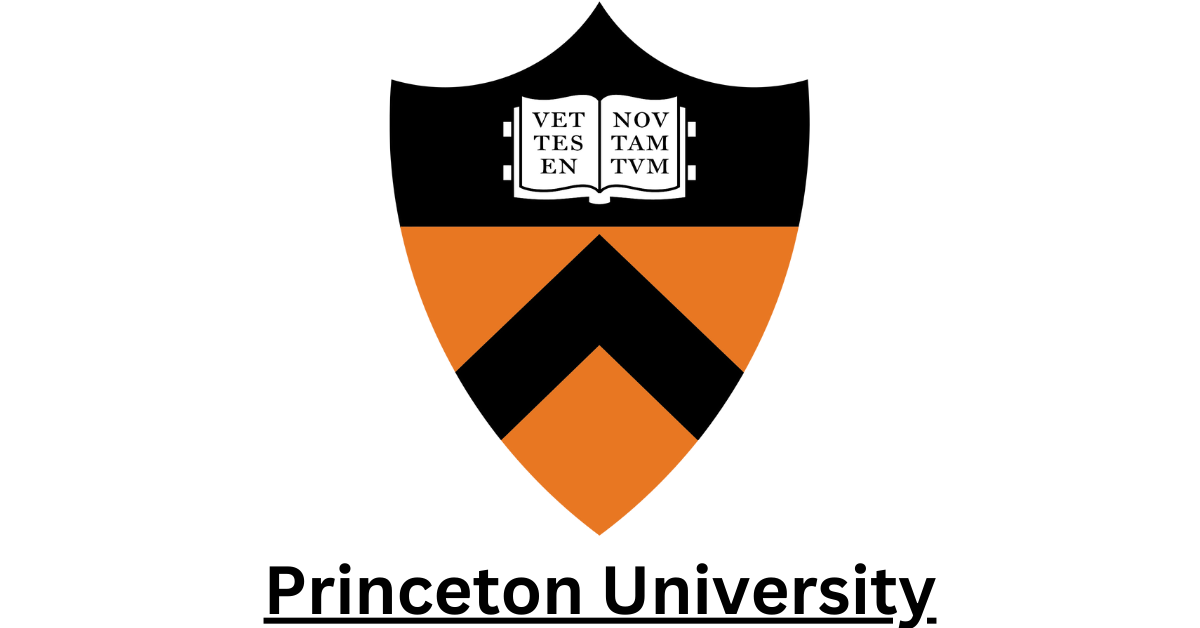Princeton University, one of the most prestigious Ivy League institutions, stands as a beacon of academic excellence, rich history, and innovative research. Founded in 1746, it has evolved over centuries to become a leading global university. This article explores the university’s history, campus life, academic programs, notable alumni, and contributions to research and society.

History of Princeton University
Early Beginnings and Founding
Princeton University was originally founded as the College of New Jersey in 1746 in Elizabeth, New Jersey. It moved to Newark in 1747 before settling in its current location in Princeton in 1756. The institution was established by New Light Presbyterians to train ministers, but it soon expanded its academic offerings.
Growth and Development
Under the leadership of figures like Jonathan Dickinson, Aaron Burr Sr., and John Witherspoon, the college grew in stature and influence. John Witherspoon, in particular, was instrumental in broadening the curriculum to include the sciences, philosophy, and history, molding it into a more modern institution.
Transition to University
In 1896, the College of New Jersey was officially renamed Princeton University, reflecting its expanded scope and academic ambitions. This period also saw the establishment of the Graduate School, which further cemented Princeton’s commitment to advanced education and research.
Campus and Architecture
Historic Buildings
Princeton’s campus is renowned for its Collegiate Gothic architecture, epitomized by buildings like Nassau Hall, which dates back to 1756 and is the oldest building on campus. Nassau Hall played a significant role during the American Revolution, serving as the temporary capital of the United States in 1783.
Modern Additions
While historic buildings define much of Princeton’s aesthetic, the campus also boasts modern architectural marvels. The Lewis Library, designed by Frank Gehry, and the Icahn Laboratory, designed by Rafael Viñoly, showcase the university’s blend of tradition and innovation.
Campus Life and Facilities
Princeton’s 600-acre campus is not only home to academic buildings but also to state-of-the-art facilities. The university offers various amenities, including libraries, research centers, residential colleges, dining halls, and athletic facilities. The Princeton University Art Museum houses an extensive collection of art, providing cultural enrichment to students and visitors.
Academic Excellence
Undergraduate Programs
Princeton University offers a diverse array of undergraduate programs across its various departments and schools. The curriculum is designed to provide a liberal arts education, emphasizing critical thinking, creativity, and leadership.
Notable Departments
- School of Engineering and Applied Science: Known for its rigorous programs in fields like computer science, electrical engineering, and mechanical engineering.
- Woodrow Wilson School of Public and International Affairs: Offers interdisciplinary studies in public policy and international relations.
- Department of Economics: Renowned for its contributions to economic theory and research.
Graduate Programs
Princeton’s Graduate School offers advanced degrees in numerous disciplines, from the humanities and social sciences to the natural sciences and engineering. The university is particularly noted for its Ph.D. programs, which emphasize original research and academic scholarship.
Research Initiatives
Princeton University is at the forefront of research in various fields. It boasts numerous research centers and institutes, such as:
- Princeton Plasma Physics Laboratory (PPPL): A leader in fusion energy research.
- Princeton Neuroscience Institute (PNI): Conducts groundbreaking research in brain science.
- Andlinger Center for Energy and the Environment: Focuses on sustainable energy solutions and environmental protection.
Princeton’s Faculty
Renowned Professors
Princeton’s faculty includes some of the world’s leading scholars and researchers. The university has a long history of attracting Nobel laureates, Pulitzer Prize winners, and other distinguished academics.
Notable Faculty Members
- Albert Einstein: While not a full-time faculty member, Einstein was associated with Princeton’s Institute for Advanced Study.
- Toni Morrison: Nobel Prize-winning author and professor emeritus of literature.
Teaching Philosophy
Princeton places a strong emphasis on teaching, with a low student-to-faculty ratio that ensures personalized attention and mentorship. The university’s faculty are dedicated to fostering an environment that encourages intellectual curiosity and academic excellence.
Student Life
Residential Colleges
Princeton’s unique residential college system enhances the undergraduate experience by creating smaller, tight-knit communities within the larger university. Each residential college offers academic advising, social events, and extracurricular activities.
Extracurricular Activities
Students at Princeton have access to a wide range of extracurricular activities, from student government and academic clubs to performing arts and athletics. The university’s 37 varsity sports teams, known as the Princeton Tigers, compete in the NCAA Division I Ivy League.
Cultural and Social Life
Princeton’s location in the quaint town of Princeton, New Jersey, provides a peaceful and picturesque setting for academic and social life. The town and university host various cultural events, lectures, and performances throughout the year, enriching the student experience.
Notable Alumni
Influential Figures
Princeton University has produced a remarkable array of alumni who have made significant contributions in various fields.
Politics and Public Service
- Woodrow Wilson: 28th President of the United States and former president of Princeton University.
- Michelle Obama: Former First Lady of the United States and advocate for education and health.
Science and Technology
- Alan Turing: Mathematician and pioneer of computer science.
- Jeff Bezos: Founder of Amazon and aerospace company Blue Origin.
Literature and Arts
- F. Scott Fitzgerald: Renowned author of “The Great Gatsby.”
- David Duchovny: Actor known for his roles in “The X-Files” and “Californication.”
Global Impact
Princeton alumni have a global presence, with many leading influential organizations, contributing to international policy, and advancing scientific and technological innovations. Their impact extends across continents and industries, reflecting the university’s commitment to producing leaders and changemakers.
Contributions to Research and Innovation
Pioneering Discoveries
Princeton University has been the site of numerous groundbreaking discoveries and innovations.
Physics and Engineering
- Joseph Henry: Conducted pioneering work in electromagnetism.
- John Bardeen: Co-inventor of the transistor, a fundamental component of modern electronics.
Social Sciences and Humanities
Princeton researchers have made significant contributions to understanding human behavior, society, and culture. The university’s scholars in psychology, sociology, history, and literature have advanced knowledge and provided insights into human nature and societal development.
Interdisciplinary Research
Princeton emphasizes interdisciplinary research, encouraging collaboration across different fields. This approach has led to innovative solutions and advancements in areas such as environmental science, neuroscience, and public policy.
Commitment to Diversity and Inclusion
Historical Challenges
Like many institutions, Princeton has faced challenges related to diversity and inclusion. The university has a history of exclusion and segregation, particularly concerning race and gender.
Progress and Initiatives
In recent decades, Princeton has made significant strides towards creating a more inclusive and diverse community. Initiatives include:
- Task Force on Equity and Inclusion: Established to address issues of diversity and recommend actionable changes.
- Center for African American Studies: Promotes the study and understanding of African American history and culture.
- Princeton Prize in Race Relations: Recognizes high school students working to improve race relations in their communities.
Current Demographics
Princeton continues to work towards increasing the representation of underrepresented groups among its students, faculty, and staff. The university offers various support programs and resources to ensure a welcoming environment for all.
Princeton’s Global Influence
International Programs
Princeton University maintains a strong global presence through its international programs and partnerships. The university encourages students to engage in study abroad programs, international internships, and research opportunities.
Global Research Collaborations
Princeton collaborates with leading universities and research institutions worldwide. These partnerships facilitate the exchange of knowledge and resources, contributing to global advancements in science, technology, and the humanities.
Alumni Network
Princeton’s extensive alumni network spans the globe, with graduates making significant contributions in various sectors. The university’s Office of International Programs supports alumni in maintaining connections and fostering professional relationships internationally.
Future Directions
Strategic Plan
Princeton University’s strategic plan outlines its vision for the future, focusing on enhancing its academic programs, expanding research initiatives, and fostering a more inclusive community. Key priorities include:
- Advancing Science and Technology: Investing in cutting-edge research and facilities.
- Strengthening the Humanities and Social Sciences: Supporting interdisciplinary scholarship and education.
- Promoting Access and Affordability: Ensuring that a Princeton education is accessible to talented students from all backgrounds.
Sustainability Initiatives
Princeton is committed to sustainability and environmental stewardship. The university has implemented various initiatives to reduce its carbon footprint, promote renewable energy, and integrate sustainability into its curriculum and research.
Continuing Legacy
As Princeton University looks to the future, it remains dedicated to its core mission of providing an unparalleled education, advancing knowledge, and making a positive impact on society. The university’s commitment to excellence, innovation, and inclusivity ensures that it will continue to be a leader in higher education for generations to come.
Conclusion
Princeton University, with its rich history, academic excellence, and global influence, stands as a testament to the power of education and research. Its commitment to fostering intellectual growth, promoting diversity, and advancing human knowledge makes it a beacon of learning and innovation. As it continues to evolve and adapt to the changing needs of society, Princeton University remains steadfast in its mission to educate the leaders and thinkers of tomorrow, ensuring a brighter future for all.
